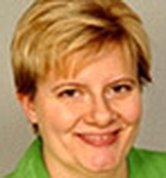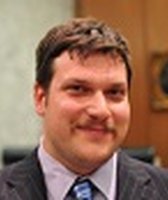Get PolitiFact in your inbox.
Bernie Sanders is the longest-serving independent member of Congress who, despite not holding party affiliation, is a rising star in the relatively sparse Democratic presidential primary field.
The Vermont senator – a self-professed socialist – trails former Secretary of State Hillary Clinton in that five-candidate race.
Sanders would beat Republican front-runner Donald Trump, according to a national poll from Quinnipiac University released last week. Former Florida Gov. Jeb Bush and Wisconsin Gov. Scott Walker, two other leaders in the crowded 17-candidate GOP field, would edge out Sanders in a hypothetical matchup.
Sanders’ talking points have focused primarily on the economy and income inequality, and they helped lure 100,000 supporters to an online "house party" last week. The rhetoric also has forced Clinton to address those topics in her campaign.
PolitiFact has fact-checked 24 statements Sanders made on those topics and other issues as of July 31.
Of them, five were rated True (21 percent), eight Mostly True (33 percent) and five Half True (21 percent). Two others were ruled Mostly False (8 percent), and four were False (17 percent). None of his claims were rated as Pants on Fire.
See them all at www.politifact.com/personalities/bernie-s/.
"Nearly 6 out of 10 believe that money and wealth should be more evenly distributed among a larger percentage of the people in the U.S."
Bernie Sanders in a June 4, 2013, post to Twitter
Income inequality has become a recurring theme of Sanders’ stump speeches, but he was talking up the issue long before his presidential run.
In 2013, he Tweeted about a seemingly high percentage of people holding strong views on the topic.
"Nearly 6 out of 10 believe that money and wealth should be more evenly distributed among a larger percentage of the people in the U.S.," Sanders posted to the social media site.
PolitiFact checked, and not only was Sanders right, the statistic has not changed much for nearly 30 years.
The Gallup polling group has asked some variation of the question since 1985.
The 2013 poll showed that 59 percent agreed that "the money and wealth in this country should be more evenly distributed among a larger percentage of the people," while 33 percent said the distribution was fair. The poll had a margin of sampling error of 4 percentage points.
Gallup asked the question 11 times before that, with the percentage saying that wealth should be more evenly distributed falling within a fairly narrow band, ranging between 56 percent and 68 percent.
We rated his statement True.
For African-Americans between the ages of 17 and 20, "the real unemployment rate … is 51 percent."
Bernie Sanders during a July 6, 2015, rally in Portland, Maine
Race relations and racism also have surfaced as key topics in Sanders’ campaign.
During a rally in Maine earlier this summer, he made a striking claim about unemployment among African-American youth.
"For young people who have graduated high school or dropped out of high school, who are between the ages of 17 and 20, if they happen to be white, the unemployment rate is 33 percent," he said. "If they are Hispanic, the unemployment rate is 36 percent. If they are African-American, the real unemployment rate for young people is 51 percent."
The left-leaning Economic Policy Institute backs up those figures, but it took the unusual step of counting part-time workers as unemployed because of the weak economy.
The most commonly used unemployment rate from the Bureau of Labor Statistics – which looks at ages 16 to 19 – is not as high as Sanders’ statement. It shows 15.7 percent unemployment for whites in that range, 20.8 percent for Hispanics and 31.8 percent for African-Americans.
Still, those figures support Sanders’ overall point, that African-American youths have significantly worse job prospects than either Hispanics or whites do.
We rated the claim Mostly True.
"One out of four corporations doesn't pay a nickel in (federal income) taxes."
Bernie Sanders on Sept. 24, 2013, during a segment of CNN's "Crossfire"
Sanders was talking with Sen. Lindsey Graham, R-S.C., about federal income taxes on "Crossfire" in 2013 when he dropped a dramatic statistic.
"One out of four corporations doesn't pay a nickel in taxes," Sanders told Graham, now a contender for the GOP presidential nomination.
The implication was that, if not for special breaks in the tax code, those companies would be writing checks to the Internal Revenue Service.
Sanders cited a 2008 study from the Government Accountability Office that backs up the overall claim but also did not distinguish between firms that had losses in the normal course of business and those that reported losses solely through the use of the tax code.
Special tax breaks and abuses of the tax code exist, but even an analysis from a group that shares many of Sanders’ perspectives pointed to a ratio that was, at most, one out of six and possibly as small as one out of 16.
Sanders’ claim didn’t take into account those factors.
We rated the claim Half True.
"We have the highest rate of childhood poverty of any major country on Earth."
Bernie Sanders on July 5, 2015, during an interview on CNN
Sanders has focused part of his presidential run on decreasing poverty and income inequality in America and decrying the influence Wall Street has had on economic policy.
One statistic should be an embarrassment, he said: "We have the highest rate of childhood poverty of any major country on Earth."
Sanders’ campaign said he was referring to the 34 generally wealthy countries that are members of the Organisation for Economic Co-operation and Development and was citing a 2012 UNICEF report on childhood poverty. In the report, the United States ranked 34th out of 35 countries with a childhood poverty rate of 23.1 percent, besting only non-OECD member Romania. The report primarily uses data from 2009.
According to that report, Sanders’ statement would be true; however, a later UNICEF report from 2014 with more recent OECD data put the U.S. rate of childhood poverty lower than that of Israel, Mexico, Spain, and Greece, as well as that of non-OECD Latvia. (Romania was not included.)
The OECD also released its own report on childhood poverty in 2014, using data from 2010. According to that, the United States has less childhood poverty than Chile, Mexico, Turkey, Israel — all of which are OECD members — and Romania.
So while the United States does consistently have one of the highest rates of childhood poverty in the world, there are several OECD members with higher rates, notably Israel and Mexico.
We rated this claim Mostly False.
"We now work the longest hours of any people around the world."
Bernie Sanders on March 8, 2011, during an interview on C-SPAN
In 2011, Sanders responded to a caller who said federal welfare programs had taken away Americans’ incentive to work by saying what many of us all feel about our workweeks.
"We are the hardest-working people in the world," Sanders said. "A few years ago, we had the dubious distinction, I think, of surpassing the Japanese in terms of the number of hours our people worked. We now work the longest hours of any people around the world."
Sanders’ office cited a press release from the International Labour Organization, a U.N. agency that oversees international labor standards. The release ran under the headline, "Americans work longest hours among industrialized countries, Japanese second longest."
But the release was from 1999. And based on 1997 data.
When PolitiFact asked the International Labour Office for more recent statistics, the 2008 data showed the U.S. ranked eighth (out of 28) when it comes to the annual number of hours actually worked per person.
The Organisation for Economic Co-Operation and Development, meanwhile, showed data for more industrialized countries in its 2008 report. It ranked the U.S. 12th out of 35.
So Sanders may have been right when comparing the United States to other industrialized nations in 1997.
But it's not true now, and it's not true when you consider "any" country, as Sanders said. We ruled his statement False.
Comment on a ruling
Want to comment on a Truth-O-Meter ruling? You can. Just go to Facebook and search for PolitiFact Georgia. Once our page appears, hit the "Like" button. Then commence commenting.
Throughout the week, The Atlanta Journal-Constitution and its PolitiFact partners test the truth of statements. For previous articles, see our premium website, myAJC.com.
ROAD TO 2016
Bernie Sanders
Age: 73, born Sept. 8, 1941; Brooklyn, NY.
Political party: Independent, running in Democratic primary
Political experience: Served four terms as independent mayor of Burlington, Vt., 1981 to 1989. Elected to the U.S. House in 1990 and served 16 years as Vermont’s only congressman. Elected to U.S. Senate in 2006 and now in his second term.
Business: Former carpenter and documentary filmmaker/director of the nonprofit American People's Historical Society.
Education: University of Chicago, bachelor’s degree in political science.
Family: Wife, Jane, four children and seven grandchildren
Interesting factoid: Long a registered independent, Sanders began his political career in 1971 as a member of the Liberty Union Party, born out of the anti-war movement. He ran unsuccessfully as the Liberty Union candidate for governor of Vermont in 1972 and 1976 and as the U.S. Senate candidate in 1972 and 1974. He resigned from the party in 1977.
Our Sources
See individual reports.
Bernie Sanders 2016 candidate website
The Guardian, "Inside the mind of Bernie Sanders," June 19, 2015
Bloomberg.com, "Poll: Donald Trump Leads GOP Primary Rivals, Trails Hillary Clinton, Bernie Sanders," July 30, 2015
New York Times, "Bernie Sanders Hosts a Nationwide House Party for Over 100,000 Would-Be Foot Soldiers," July 30, 2015
















































